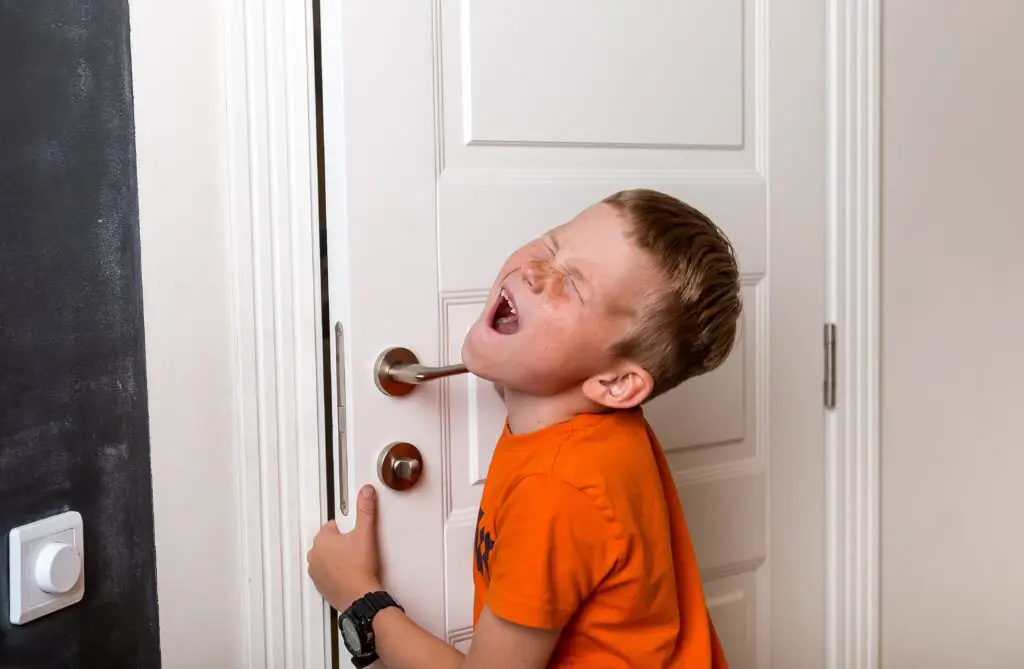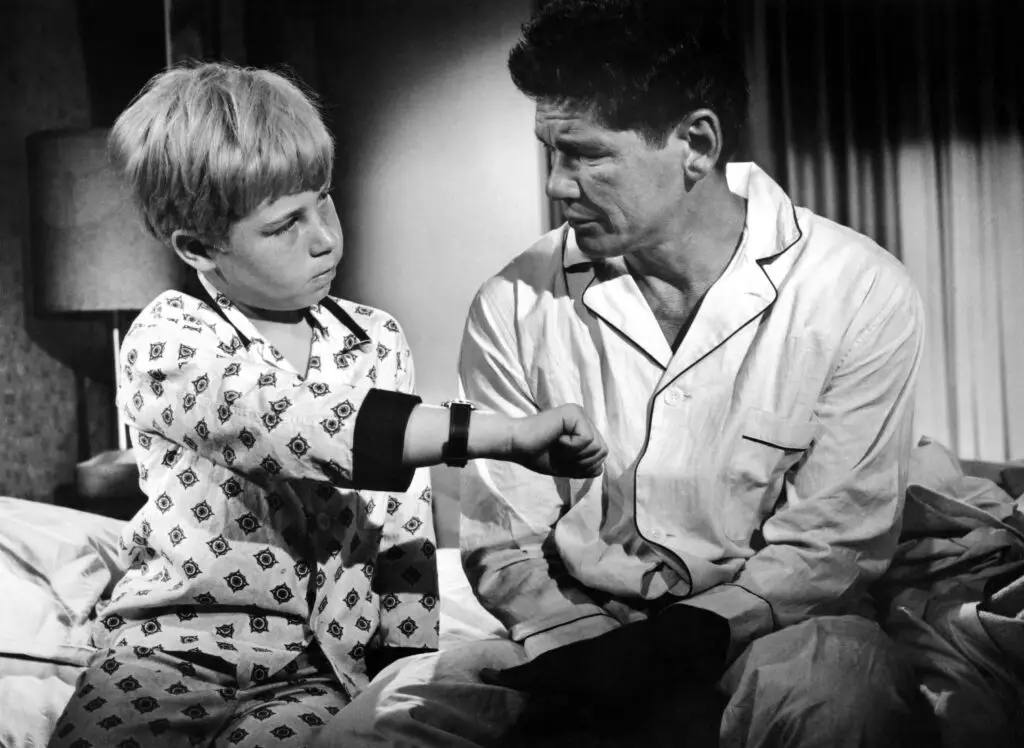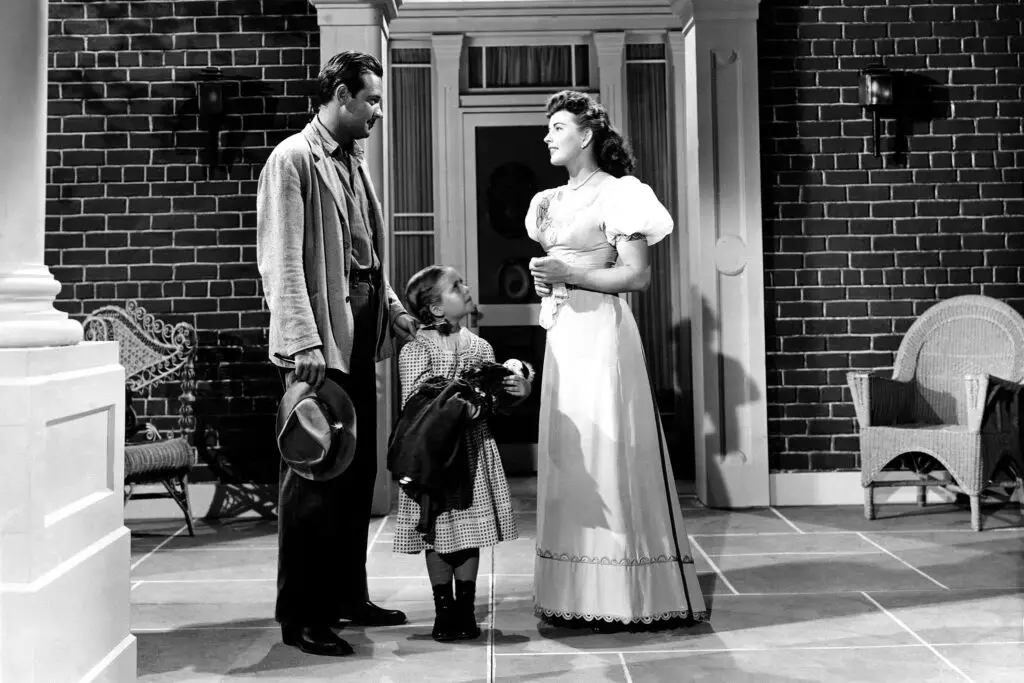1. Spanking for Discipline

Back in the day, corporal punishment was considered a standard way of disciplining children. It was often seen as an effective way to teach respect and obedience, but today, many experts warn against it, citing the long-term psychological effects it can have. Parents would spank their kids for the smallest offenses, like not finishing their homework or talking back, with the belief that physical punishment would correct bad behavior. This technique was widespread in the 1950s and 1960s, even though research now shows that it can lead to increased aggression and anxiety in children says Harvard.
Today, positive reinforcement and setting boundaries through communication are much more common strategies. Many parents now focus on emotional regulation and teaching kids the value of understanding their actions rather than relying on fear or physical punishment. As a result, spanking is no longer widely accepted in most cultures, and its effectiveness is heavily debated. More progressive parenting methods emphasize empathy, patience, and active listening to create healthier parent-child relationships adds the NIH.
2. Locking Kids in Their Rooms

It was once a common practice to send children to their rooms as a form of punishment. Often, this wasn’t just about sending them to cool down or reflect—it was about locking them in there to make sure they stayed put. The idea was that isolation would give them time to think about their actions and hopefully learn their lesson. But this method can feel incredibly harsh to children and may foster feelings of loneliness or rejection shares Reddit.
Today, the focus is more on open communication and working through conflicts together. Sending a child to their room is still used by some parents but typically without locking them in as a punishment technique. Instead, it’s often seen as a cooling-off period to help kids regain their composure. Encouraging healthy dialogue and providing emotional support have become the preferred way to address misbehavior in children adds Quora.
3. Putting Kids to Bed Without Dinner

In the past, some parents believed that if a child misbehaved, they deserved to go to bed hungry. The idea was that missing a meal would teach them a lesson about their actions, whether it was skipping dinner or not following the rules. Unfortunately, this technique often led to feelings of resentment and low self-worth for the child. In many cases, the punishment left children emotionally scarred and afraid of their parents.
Modern parenting techniques focus more on addressing the root cause of the behavior instead of withholding necessities like food. Parents are now more likely to encourage their kids to express their feelings and work through issues together. Meal times have evolved into family bonding moments, and it’s much less common for food to be used as a punishment. Positive discipline, where parents guide children through consequences and explain the reasoning behind them, has replaced this outdated approach.
4. Making Children Wear Uncomfortable Clothes

There was a time when parents would force their children to wear clothes that were uncomfortable, just to make sure they looked proper for the occasion. Whether it was stiff dresses or uncomfortable suits, the idea was that children should learn to tolerate discomfort for the sake of appearance. Unfortunately, this often led to kids feeling frustrated, anxious, and less confident.
Today, parents generally prioritize comfort and practicality when choosing clothing for their children. Encouraging self-expression through clothing is now seen as a better way to help children develop confidence. While special occasions might still call for dressing up, the emphasis is on letting kids feel comfortable in their clothes. Comfort is key for many parents today, understanding that how a child feels in their clothes can impact their overall mood and confidence.
5. Shaming Children in Public

In the past, some parents would shame their children in public to teach them a lesson about embarrassing behavior. This might have involved raising their voice in front of others or giving them a harsh reprimand in front of a crowd. The idea was that children would be too embarrassed to repeat the behavior, but it often led to feelings of humiliation and lowered self-esteem.
Nowadays, parents are more likely to discipline their children in private, away from the public eye. Shaming techniques have largely fallen out of favor as experts have shown how damaging they can be to a child’s emotional well-being. Instead of embarrassment, modern discipline focuses on correction through understanding, patience, and guidance. Children are now more likely to receive constructive feedback, which helps them learn from their mistakes without compromising their dignity.
6. Using Scare Tactics to Prevent Bad Behavior

Parents in the past would sometimes use extreme scare tactics to deter children from bad behavior. This might have included threats like “The boogeyman will get you” or “If you don’t listen, someone will take you away.” While this may have worked in the short term, it often caused anxiety and fear that lasted long after the threat was made.
Today, parenting focuses more on providing clear consequences for actions while ensuring that the child feels safe and supported. The use of fear-based tactics has largely been replaced by education and understanding. Children are now taught to think critically about their actions and their consequences rather than being scared into compliance. Parents are encouraged to have open conversations with their kids, which helps them feel empowered and in control of their own behavior.
7. Force-Feeding Children

In earlier times, it was a common practice to make children eat their food, even if they didn’t want to. Parents believed that if a child didn’t finish their meal, they were being disrespectful or wasting food, and some would literally force them to eat. This technique often led to negative relationships with food, making children dread meal times and sometimes develop unhealthy eating habits later in life.
Today, parents are more mindful about their children’s relationship with food. Rather than force-feeding, many encourage healthy eating habits by offering nutritious food choices and letting the child have some say in what they eat. The idea now is to help children develop a positive relationship with food, fostering an environment where they learn to listen to their own hunger cues. Meal times are less about force and more about fostering good habits and making food enjoyable.
8. Telling Children “Because I Said So”

It used to be a common phrase in parenting: “Because I said so!” When a child asked why they had to do something, this was often the final answer, with no further explanation given. Parents thought this would establish authority, but it often left children feeling confused and resentful.
Today, parents are encouraged to explain the reasoning behind their rules and decisions. Modern parenting emphasizes the importance of giving children a clear understanding of why certain actions are expected, helping them develop a sense of responsibility and trust. The approach now focuses on collaborative communication, where children are included in discussions, helping them feel respected and valued. This has led to better parent-child relationships and a more cooperative home environment.
9. Ignoring a Child’s Emotional Needs

In the past, parents were often advised to “toughen up” their children, telling them not to cry or show vulnerability. This might have meant brushing off a child’s emotional needs in favor of focusing on behavior and achievements. While the intention was often to prepare children for a tough world, this approach could lead to emotional suppression and hinder the development of healthy emotional expression.
Nowadays, emotional intelligence is a key component of modern parenting. Parents are more likely to acknowledge and validate their children’s feelings, teaching them that it’s okay to express their emotions. Rather than dismissing emotions, parents now help children navigate through them, fostering resilience and empathy. Children today are taught to recognize and manage their feelings in a healthy way, which supports their emotional development in the long run.
10. Scolding Children for Curiosity

There was a time when children’s curiosity was often stifled with harsh reprimands. If a child asked too many questions or expressed interest in something deemed “inappropriate,” they might have been scolded or told to mind their own business. This approach discouraged children from exploring the world around them and could hinder their intellectual and emotional growth.
Modern parenting encourages curiosity and learning. Parents now appreciate the importance of asking questions and exploring new ideas, viewing it as a sign of growth and intelligence. Today, instead of discouraging curiosity, parents are more likely to nurture it, answering questions and guiding children through their discoveries. The goal now is to cultivate a love of learning and critical thinking rather than shutting down a child’s curiosity.
11. Overloading Kids with Extracurricular Activities

In the past, parents often filled their children’s schedules with a variety of extracurricular activities, believing that the busier their kids were, the better. From dance classes to sports, academic enrichment to musical training, the idea was to ensure that children stayed well-rounded. However, this often led to burnout and stress for kids who had little downtime or opportunity to simply relax and be themselves.
Today, parents are much more mindful about balancing activities with rest and personal time. While extracurriculars are still valuable, there’s more emphasis on letting children choose their interests and hobbies, without overwhelming them. The focus is now on finding a healthy balance between structured activities and free play, allowing kids to grow at their own pace and enjoy their childhood.
12. Expecting Kids to Be Seen, Not Heard

There was a time when children were expected to stay quiet and remain out of the adult conversation. This meant that kids were often not given a voice in family matters, with their opinions or feelings disregarded. The concept of “children should be seen, not heard” was widely accepted, leaving kids to feel like they had no place in important discussions.
Today, children are encouraged to express their thoughts and opinions. Modern parenting values the importance of involving children in conversations, allowing them to contribute to family decision-making. Parents understand that empowering children to voice their ideas promotes self-confidence, communication skills, and healthy relationships. Instead of silencing them, parents now actively listen, making their children feel respected and included.
13. Not Allowing Kids to Express Their Opinions

In the past, it was often assumed that children didn’t have the maturity or insight to have opinions on important matters. They were expected to accept decisions made by adults without question, even if it didn’t align with their preferences or feelings. This approach could lead to a lack of independence and self-advocacy as children grew up.
Today, many parents encourage their children to voice their opinions and engage in respectful debates. By doing so, children learn critical thinking and develop a sense of autonomy. Parents today understand that having a say in family matters helps children build confidence, foster a sense of responsibility, and feel valued within the family dynamic.
